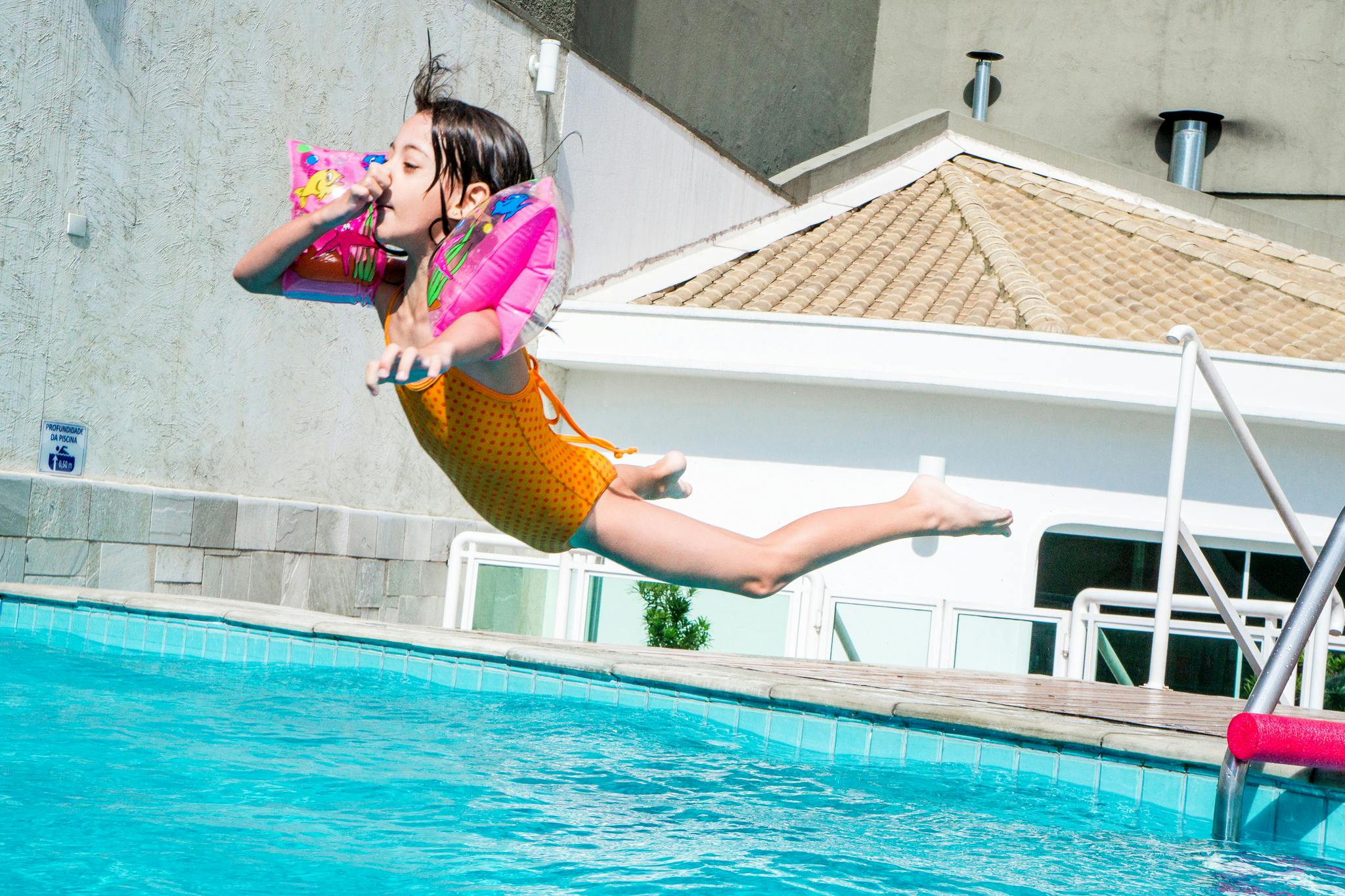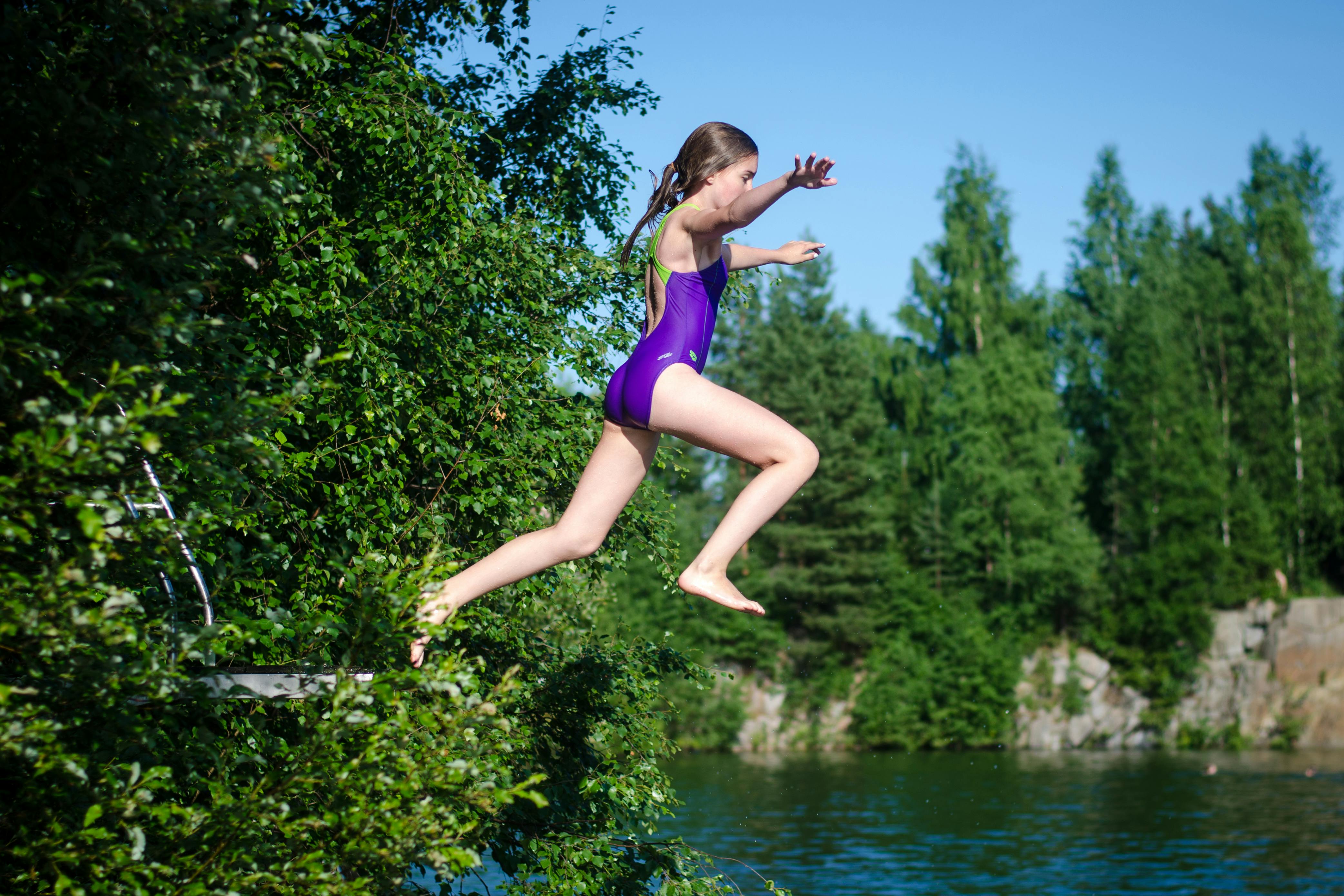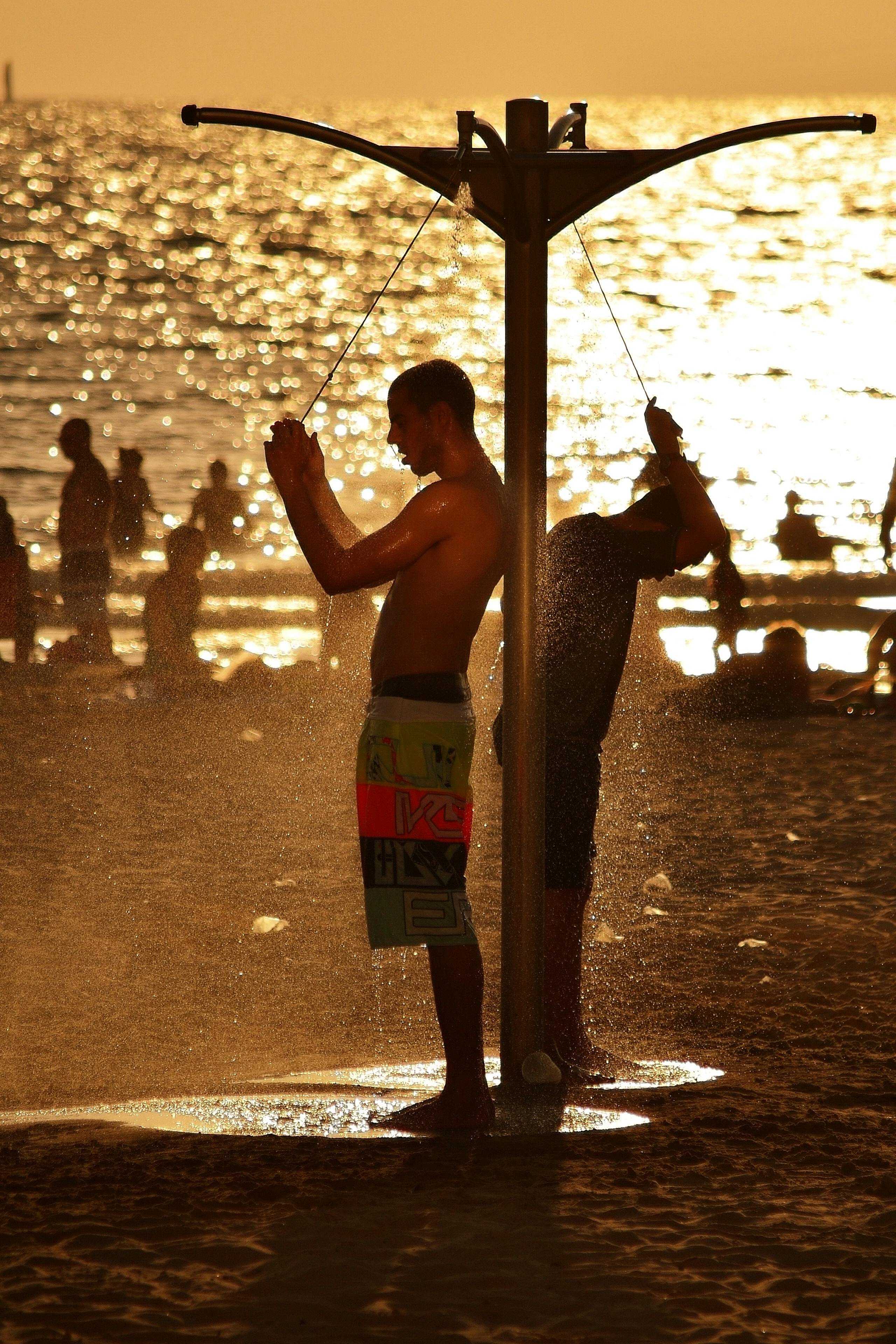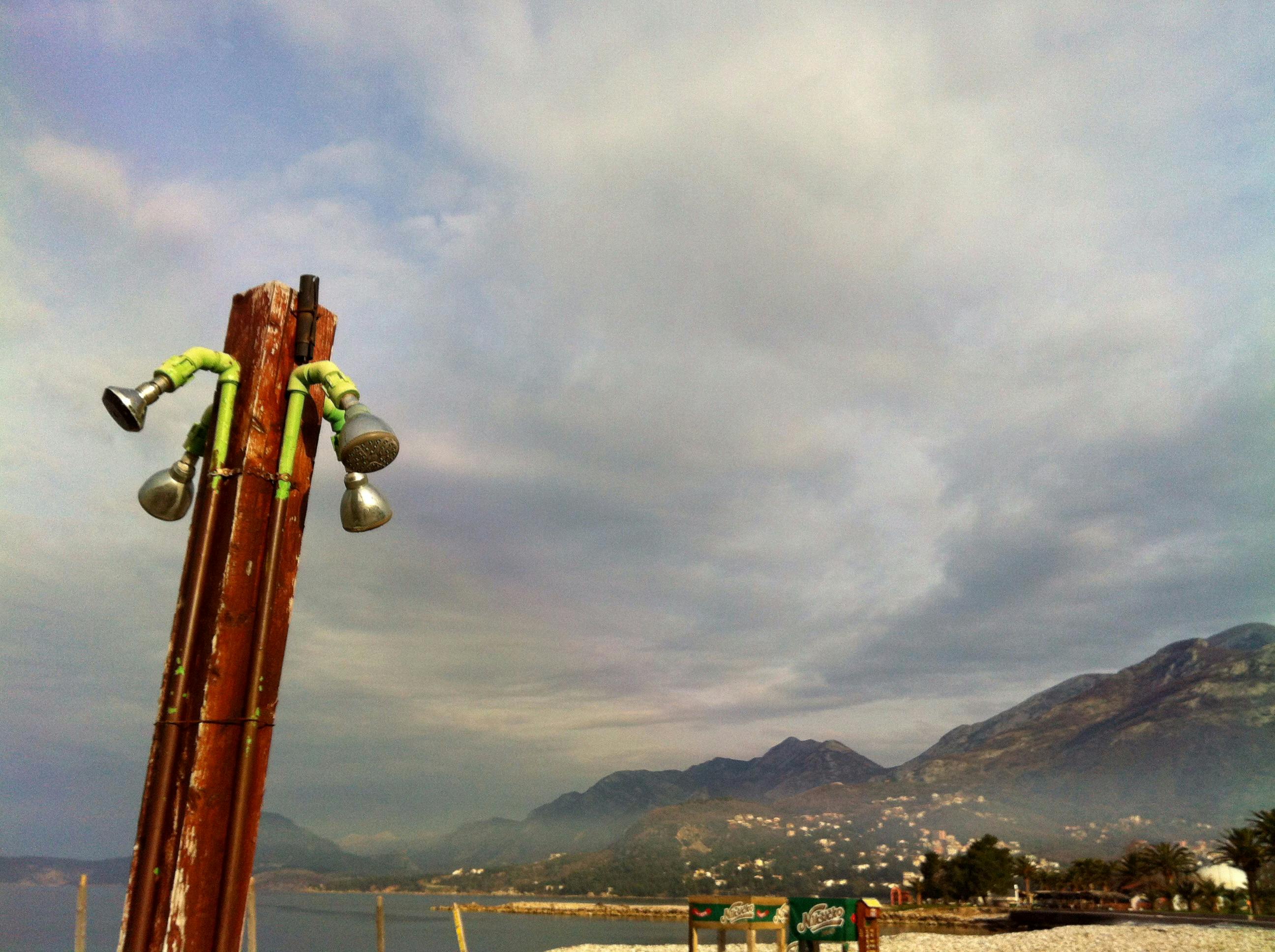Have you ever bolted through the mandatory pool showers? Skipped the rinse-off area before you hit the beach? You’re not alone. More than 40% of people don’t shower before going swimming.
That means when you go for a dip, chances are you are swimming in perspiration, lotions, urine and fecal matter, and any other microbes found on our skin and hair.
Gross.
Showering before swimming is one of the best ways to protect yourself and other swimmers from recreational water illnesses. Only 30% of us always shower before a swim. That means a lot more people need to spend a lot more time in those showers.
Here’s why you should always shower, with soap, before and after recreational water activities.
1. Chlorine kills, but only sort of
In swimming pools, hot-tubs, and water parks, chlorine is used to kill and oxidize harmful bacteria and germs such as E-coli. Chlorine is a highly effective disinfectant. However, the chemical doesn’t work on everything. And, chlorine doesn’t work instantly. It takes chlorine anywhere from 1 minute to several days to work, depending on the agent. For examples it take 10 days for chlorine to kill the harmful parasite Cryptosporidium.

When chlorine mixes with our bodies organic matter it can create a more toxic agent called halogenated by-products (HBPs). Yuck. This is another reason why public pools recommend showering before swimming.
Showering helps remove sweat, lotions, sunscreen, bacteria and organic matter. This means the chlorine in the pool won’t have to work as hard, and more illnesses can be prevented.
2. Lakes and oceans get dirty, too
The same rules apply when swimming in natural bodies of water such as lakes and rivers. If you don’t shower before you go in the water, you bring in trace levels of fecal matter and associated pathogens. That’s why beach water quality at some beaches gets worse as the day goes on.

The U.S. Centers for Disease Control and Prevention (CDC) estimates that on average, people have about 0.14 grams of feces on their bodies. Swallowing even a small amount of water contaminated with feces can make you sick. So by not showering, you put yourself and others at risk of contracting a recreational water illness.
People who are completely immersed in the water and who are in the water for extended periods of time such as open-water swimmers, surfers, windsurfers, and little kids playing for hours at the shoreline, are more at risk of infection.
3. Post-swim showers ensure you leave bacteria behind
Showering after swimming is just as important.
Showering after swimming in a natural waterbody will help reduce your risk of contracting infections and rashes. This is because showering with warm water and soap immediately after recreational water activities helps remove bacteria from your skin’s surface and your hair. Even if you are participating in a secondary recreational water activity such as paddling, boating or fishing it is important to shower. You may not be immersed in the water but you are still being exposed to its contaminants.

Read more here about primary and secondary recreational water contact.
If you’re participating in a recreational water activity in areas where the water quality is not monitored (or you’re unaware of the results) it is especially important to shower with soap after you’re finished.
Not convinced? Remember, 40% of your beach-going friends probably didn’t rinse off before they went swimming. You can rinse off in the shower and leave their germs behind. Or, you can take them home with you on your skin and in your hair. The choice is yours.

